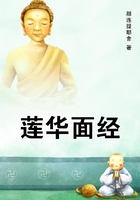The Antinomy of Exchange Value Exchange value -- that is, as just explained, objective exchange value -- shows the same movement as subjective value.
With every addition to the amount to be sold (demand remaining constant), goes a fall in the return got for the single item, while the total return rises: this is the "up grade" of value.
But, when a certain point is reached, the total return also falls: this is the "down grade" of value. And where, finally, there is universal superfluity, no price whatever can be obtained.
The causes of this movement are even stronger in the case of exchange value. It is induced not only by the natural limitation of wants, inasmuch as these cannot reach beyond the point of satiation, but also by the actual limitation of the purchasing power of many buyers, who have not means enough to satisfy their wants to the point of satiation. Goods which would still find purchasers, so far as wants are concerned, often find no sale in the market, and consequently the upper limit of price is often reached sooner than that of subjective value.
There would, nevertheless, be just as little reason to speak of an antinomy of exchange value as of an antinomy of subjective value, were it not that the economic order, under which society exists, gives to exchange value an efficiency in the general business economy, which goes far beyond that of subjective value in the individual economy. In every self-contained private economy utility is the highest principle; but, in the business world, wherever the prodding of society with goods is in the hands of undertakers who desire to make a gain out of it, and to obtain a remuneration for their services, exchange value takes its place. The private undertaker is not concerned to provide the greatest utility for society generally; his aim is rather to obtain the highest value for himself: -- which is at the same time his highest utility. Utility approves itself as the first principle in the undertaker's economy; but, just because of this, in the conflict between exchange value and social utility, it is exchange value which is victorious, -- so far at least as the undertaker has power to act according to his own interest.
Proudhon, therefore, is right -- although he may not have formulated his contention quite correctly -- when he affirms the antinomy of exchange value. Every undertaker finds it to his advantage when he succeeds in turning free goods which he cannot sell, into economically scarce goods which he can sell. And it is to his advantage when he is successful in reducing the amount to be sold, and raising the returns, just as it is to his disadvantage to increase the amount that is to be sold, and thereby diminish the returns.
The conclusion which Proudhon draws from this -- that the discord can only be resolved by a socialist organisation of society -- is nevertheless incorrect.
In the main the antinomy does not exist in the "up grade" of the movement of value. And in this up grade is found by far the greater number of the actual forms of value. Further, the antinomy only holds in so far as the undertaker is able to rule society. But where there is really free competition no undertaker has this power. Under free competition, social utility will be --as it ought to be the first principle of economic life. Here each of the competing undertakers is bound to strive to widen to the utmost the compass of his undertaking. The increase of supply which the individual producer causes is, in relation to supply as a whole, too trifling to have any material effect in lowering prices, while it materially increases the amount which the individuals have to sell. Thus every one calculates, and, on the strength of this calculation, production is stretched to the utmost possible extent. The economic history of our own time is rich in examples which prove that competition can press prices far on the down grade of exchange value.
In any remaining cases, society -- if it is to escape injury -- will, of course, require to carry on production, or have it carried on by individuals, on common account; but such cases are too few to call for the socialist organisation of society. From the first, governments have undertaken such responsibilities. The antinomy of exchange value does not necessitate a complete overturn of the free economic order of society; it merely requires that it be supplemented by suitable interference on the part of governments.















